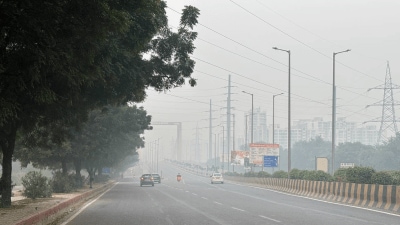Mahatma in militant land
MAHATMA Gandhi. When you get off the NH-1 near chief minister Mufti Mohammad Sayeed’s citadel Bijbehara, that’s the last name you ...

MAHATMA Gandhi. When you get off the NH-1 near chief minister Mufti Mohammad Sayeed’s citadel Bijbehara, that’s the last name you expect to hear. But in this distant hamlet set in a forest of tall chinars and slim willows, there lies a school where the Mahatma commands blind adulation.
It’s perhaps a longing for peace in a belt still ruled by the gun. A week ago, eight soldiers were killed in an IED blast, a stone’s throw from the school.
Today, a CRPF picket guards the road, while a police station lies across, and the pink building alongside is no public health centre but an Army camp. ‘‘It is super-sensitive,’’ Principal Abdul Rashid Badr carefully couches the danger in words before taking you to a class. It’s a raucous group of boys that greets you—though a co-ed, the girls and boys here are segregated in deference to militants’s dictat.
Militants are part of their life. Though there is an uncomfortable silence when you broach the topic, some voices do pipe up to say, ‘‘Yes, we’ve seen them.’’
But unlike the past they don’t barge into houses. The securitymen do. Which gets Class XII student Altaf Hussain, 18, angry. ‘‘The day the blast took place, they even roughed me up outside my village of Loiseer,’’ says the rosy-cheeked boy.
Tousseef, a wannabe doctor from Bewora village, tells you how he’s the only one from his village who has come to the school today because of the Army’s cordon and search operation. ‘‘I stole out at 6.30 in the morning,’’ the lanky youth smoothes away an imaginary strand of hair as others turn to look at him.
‘‘You can’t trust the fauj,’’ the compactly built Javed Ahmed from Kullar shakes his head. He was four when his father was shot dead by the Army in December 1994, and declared a militant. The family finally got some reprieve when Mufti gave jobs to his two elder brothers this January.
The outburst dies down the minute you mention cricket to this class that has never seen Channel V or MTV. It’s the most-loved game here followed by volleyball and badminton though the boys would have you know it’s only the girls who play the latter.
Their favourite cricketer: Sachin Tendulkar and Mohammed Sami. You wonder why it’s not Shoaib Akhtar and they tell you Sami’s line and length is better.
The girls, however, prefer Shoaib. And Salman Khan. Clad in black burqas, they talk to the point. But later, away from the ears of their teachers, they tell you how the burqa is part of the militant code. ‘‘It’s tough. They paste letters in the village even if they see a girl walking with a boy, what to think of talking to one. Then they tell parents that they want to personally admonish the girl,’’ they whisper.
That perhaps explains why they are so keen to join the police unlike the boys who abhor the khaki. ‘‘We love the uniform,’’ smile Meema Jan and Shiraza. That, they’re sure, will deliver them from fear.
Slowly, the talk veers back to the J-K issue. And you put the million-dollar question: what’s the solution? ‘‘Azadi,’’ a boy hazards. Freedom from what, you press on, and there is silence. Freedom to go to Pakistan, you suggest, and the whole class thunders ‘no’. ‘‘We don’t want that, only some bigots do,’’ Javed explains. And then, they give you their two-point solution: ‘‘Jobs for all and freedom from the security forces.’’ That’s all.
Yes, they’ve heard about Indo-Pak talks and prime minister Atal Behari Vajpayee. They like him, but not his deputy L K Advani. ‘‘He thinks all Kashmiris are terrorists,’’ a boy sneers.
What they would most like is for the Mahatma they love so much to return and restore peace.
‘‘He freed us from the British, now he could deliver us from turmoil,’’ the skull-capped Shakil-U-Rehman from Sallar has the last word.



- 01
- 02
- 03
- 04
- 05




























